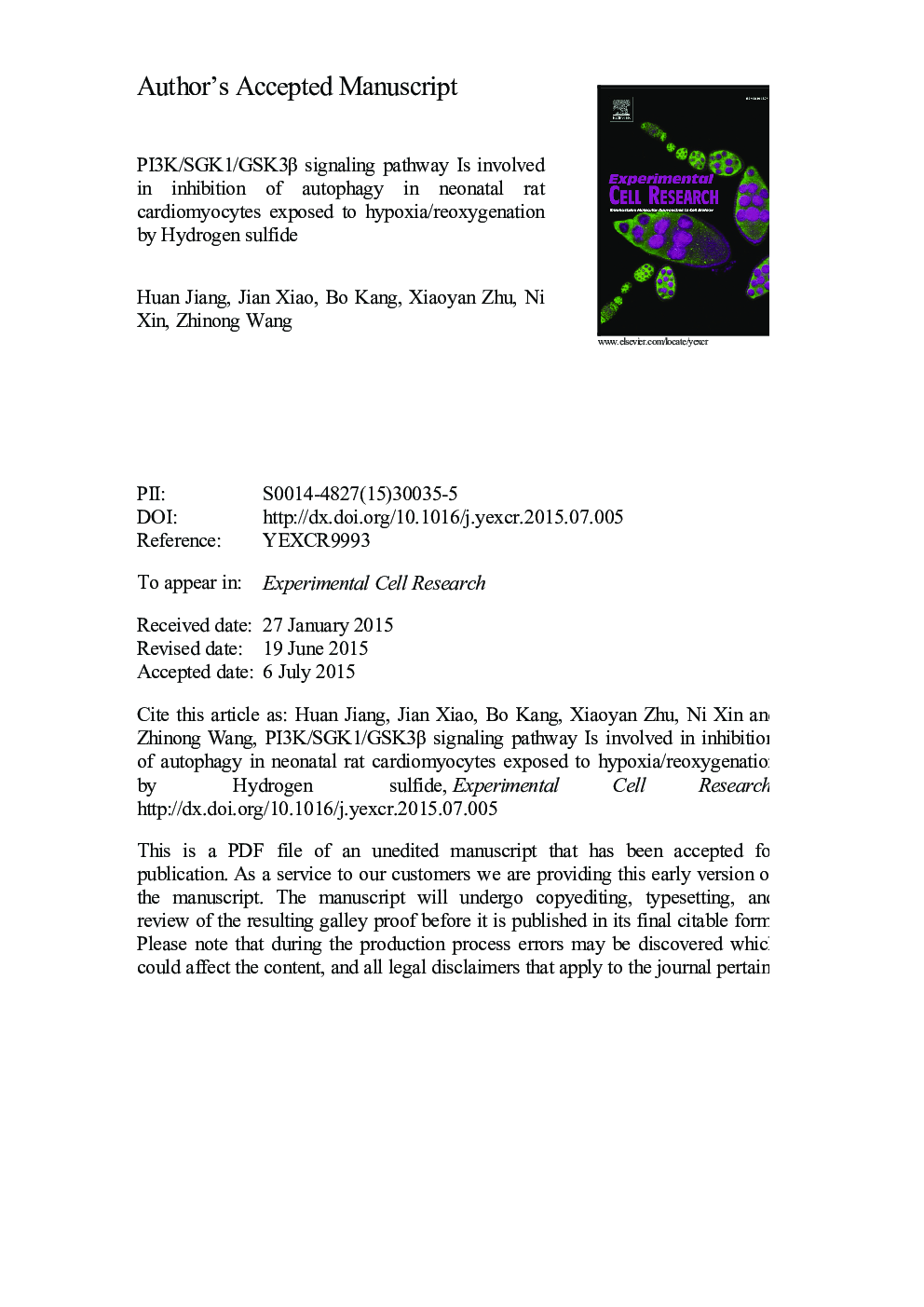| کد مقاله | کد نشریه | سال انتشار | مقاله انگلیسی | نسخه تمام متن |
|---|---|---|---|---|
| 10903704 | 1086513 | 2016 | 31 صفحه PDF | دانلود رایگان |
عنوان انگلیسی مقاله ISI
PI3K/SGK1/GSK3β signaling pathway is involved in inhibition of autophagy in neonatal rat cardiomyocytes exposed to hypoxia/reoxygenation by hydrogen sulfide
دانلود مقاله + سفارش ترجمه
دانلود مقاله ISI انگلیسی
رایگان برای ایرانیان
کلمات کلیدی
موضوعات مرتبط
علوم زیستی و بیوفناوری
بیوشیمی، ژنتیک و زیست شناسی مولکولی
تحقیقات سرطان
پیش نمایش صفحه اول مقاله

چکیده انگلیسی
Excessive autophagy aggravates myocardial ischemia/reperfusion (IR) injury. Hydrogen sulfide (H2S) has been shown to possess a strong cardioprotective effect due to its anti-necrosis, anti-apoptosis, anti-oxidant and anti-inflammatory properties. Our previous study showed that H2S could also protect the myocardium against IR injury through its anti-autophagy effect in vivo, but the underlying mechanism remains unclear. The aim of the present study was to determine whether PI3K/SGK1/GSK3β signaling pathway was involved in the anti-autophagy effect of H2S against myocardial hypoxia/reoxygenation (HR) injury in vitro. Autophagy was significantly increased in cardiomyocytes subjected to HR, but it was down-regulated by H2S (NaHS donor). Blocking PI3K by LY294002 (a PI3K inhibitor) or knocking down SGK1 by SGK1 siRNA augmented autophagy and attenuated the anti-autophagy effect of H2S. However, blocking GSK3β by tws119 (a GSK3β inhibitor) produced an opposite effect. In addition, while treatment of neonatal rat cardiomyocytes with HR reduced cell viability and augmented cell injury, H2S significantly reversed it. Blocking PI3K or knocking down SGK1 aggravated HR injury and weakened the protective effect of H2S, while blocking GSK3β produced an opposite effect. In conclusion, H2S can inhibit autophagy in neonatal rat cardiomyocytes exposed to H/R and exert a cardioprotective effect at least partly by regulating PI3K/SGK1/GSK3β signaling pathway.
ناشر
Database: Elsevier - ScienceDirect (ساینس دایرکت)
Journal: Experimental Cell Research - Volume 345, Issue 2, 15 July 2016, Pages 134-140
Journal: Experimental Cell Research - Volume 345, Issue 2, 15 July 2016, Pages 134-140
نویسندگان
Huan Jiang, Jian Xiao, Bo Kang, Xiaoyan Zhu, Xin Ni, Zhinong Wang,